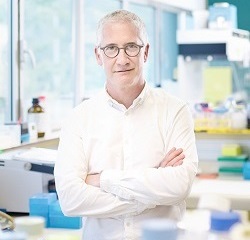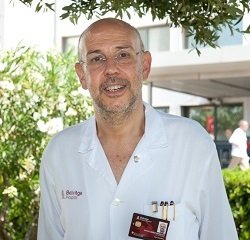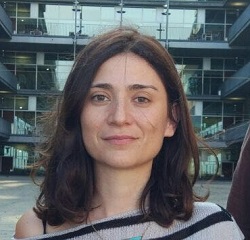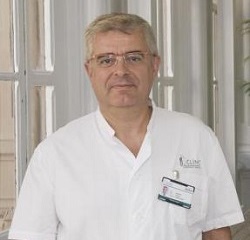5 Covid-19 therapies from Catalan research
<p>Biocat will provide support for the 19 research projects in the BioRegion awarded €4 million from the Catalan Ministry of Health to research the pandemic. 5 of these projects are researching new therapies using very diverse strategies. Let’s look at what they’re working on.</p>

The Catalan Ministry of Health announced this April that it has earmarked €4 million to fund 19 research projects at IRISCAT centers to prevent and treat the Covid-19 disease, chosen through an emergency call promoted by the Department of Research and Innovation (DGRIS), with collaboration from Biocat and the Agency for Health Quality and Assessment of Catalonia (AQuAS). Biocat will also be providing technical support for the projects, some of which are expected to reach patients by the end of the year.
Of these 19 research projects, 5 are working to develop new therapies. In this post, we’ll look more closely at these 5 projects that could come up with a response to this global pandemic in the coming months, made in the BioRegion of Catalonia.
Seeking answers to the S protein

Researcher Julià Blanco is leading a project at the AIDS Research Institute (IrsiCaixa) and Institute for Health Science Research Germans Trias i Pujol (IGTP) with an ambitious goal: to stop SARS-CoV-2 from entering human cells. How? By blocking a viral protein that is essential to this process: the S protein. The S protein on SARS-CoV-2 is the main external viral protein and allows the virus to enter target cells by binding to the ACE2 protein on the cell surface.
The S protein is found on the envelope of SARS-CoV-2 and, when it binds to the ACE2 protein in the host cell, it allows the virus to enter and infect the cell. In order to stop this, researchers will develop fusion proteins that combine antibodies with proteins derived from ACE2. These will bind to the S protein on viral particles, stopping them from interacting with host cells and preventing infection. “These strategies are very promising because they can be used against different coronaviruses and be useful in future outbreaks,” highlights Blanco.
Eliminating ‘traitor’ antibodies
As part of the body’s immune response to an infection, there are antibodies that, instead of protecting us, are used by pathogens to help spread the infection, as in the case of SARS-CoV-2. Rafel Mañez of the Bellvitge Biomedical Research Institute (IDIBELL) is  leading a project in collaboration with RemAb Therapeutics and IrsiCaixa to identify a potential drug based on glycopolymers that helps enable neutralizing antibodies against SARS-CoV-2.
leading a project in collaboration with RemAb Therapeutics and IrsiCaixa to identify a potential drug based on glycopolymers that helps enable neutralizing antibodies against SARS-CoV-2.
This project aims to identify, block and eliminate these antibodies that help the virus infect the body. They will design and test glycopolymers in vitro to help selectively eliminate this type of antibodies. This new technology would promote immediate immunity to SARS-CoV-2 and be an alternative or complement to vaccines.
“Currently, we’re working with two research centers in Saudi Arabia to eliminate the antibodies that facilitate infection by a type of coronavirus which is transmitted from camels to humans,” explains Mañez. “This project aims to identify which antibodies help this coronavirus infect the body and develop drugs to specifically target and eliminate them. We hope to be able to achieve this in 12 to 18 months because the drugs are very similar, their structure is the same and the only thing we have to do is identify the target that Covid-19 facilitator antibodies bind to,” says the researcher.
Patients’ blood, another source of answers
Giuliana Magri, a researcher at the Hospital del Mar Research Institute (IMIM), has also set her sights on antibodies. In this case, she is leading a project to study the antibodies generated in response to the SARS-CoV-2 infection and generate specific antibodies as a therapy for Covid-19 patients and as a preventative treatment for high-risk individuals.
Based on a sample of Covid-19 patients, the project led by Magri will study how their antibodies respond to SARS-CoV-2. To do so, they will analyze B lymphocytes (white blood cells that produce antibodies) in the blood of 20 Covid-19 patients. Then, specific antibodies will be generated for SARS-CoV-2 from this sample and the study will assess their capacity to neutralize the virus.
“We want to better understand how B lymphocytes, the cells in our bodies that produce antibodies, respond in Covid-19 patients after infection. We want to know if all or just some patients develop a protective immune response and how long this response lasts,” explains the researcher. “Plus, we’ll choose patients with better immune response and use the B lymphocytes in their blood to generate, with genetic engineering techniques, specific antibodies to fight SARS-CoV-2 by containing the infection, called neutralizing antibodies.”
The antibodies generated could be administered to infected patients to help stop the spread of the virus in the respiratory tract and block the infection from entering the lower respiratory tract. Plus, these antibodies could also help prevent high-risk individuals from being infected (those who are potentially exposed to the virus, like hospital professionals or high-risk groups).
Designing specific antibodies from patients
Antoni Torres, of the August Pi i Sunyer Biomedical Research Institute (IDIBAPS), is leading another project to study the antibodies developed by patients who have recovered from Covid-19. The goal? To use them as the starting point for a new  SARS-CoV-2 therapy, based on producing and administering virus-specific antibodies.
SARS-CoV-2 therapy, based on producing and administering virus-specific antibodies.
The project will analyze IgG antibodies in patents that have recovered in order to identify their epitopes (small parts of the virus recognized by the human immune system and targeted by antibodies) for the S protein on the surface of SARS-CoV-2. This study will allow for SARS-CoV-2 specific antibodies to be produced afterwards, in order to block infection.
“Our project also includes predictive models using artificial intelligence to identify new points of union between the coronavirus and antibodies,” highlight researchers Antoni Torres and Laia Fernández-Barat. “This is useful not only in designing new antibodies but also because it could have other applications, like in designing a new vaccine for Covid-19.” The project is being carried out by a large consortium that includes the Barcelona Supercomputing Center, experts in proteomics, immunology and virology to tackle the various challenges that will arise over the course of the study. “In our lab, we have a lot of experience in researching respiratory infections, studying the most basic aspects of infections and thus complementing the clinical work with a multidisciplinary approach,” they note.
Immune response, in doctors’ blood

Researchers Josep F. Nomdedeu Guinot and Silvia Vidal Alcorisa, of the Research Institute of the Hospital de la Santa Creu i Sant Pau (IR Sant Pau), are leading a project to define the dynamic of effective immune response to Covid-19 and identify groups that are more prone or immune to Covid-19. Plus, these antibodies could have applications in critical patients. To do so, they will study the SARS-CoV-2 antibodies in healthcare professionals’ blood.
Specifically, the project proposes to find the IgM and IgG antibodies against the SARS-CoV-2 proteins in plasma from all the employees at Hospital de la Santa Creu i Sant Pau. To do so, the study will take blood samples from everyone who works at the hospital.
“This will allow us, on one hand, to see which employees are immunized and can work safely and, on the other, to locate a group of people who could donate hemoderivatives with high levels of the types of immunoglobulin that could be used to treat more serious cases,” highlight the researchers.


